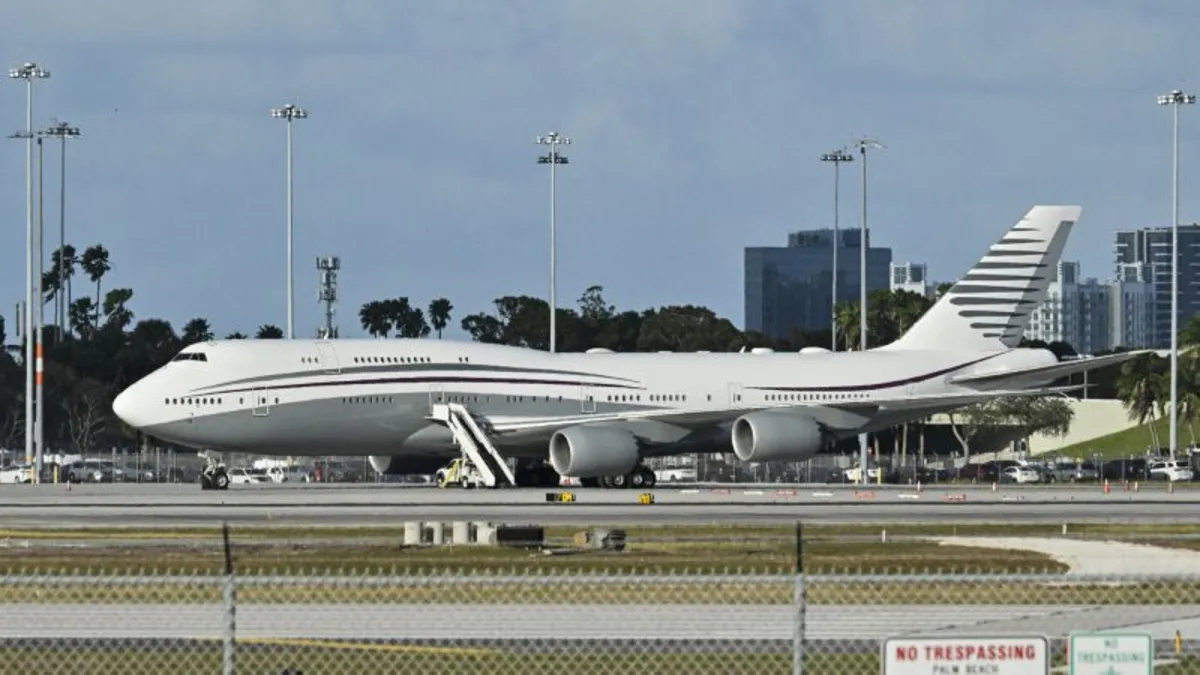
Converting a luxury jet gifted by Qatar to former President Donald Trump into a potential replacement for Air Force One could incur costs amounting to hundreds of millions of dollars. Current and former officials have indicated that the installation of required security features, advanced communications systems, and defensive capabilities may take up to two years to complete, as reported by CNN.
Republican Senator Ted Cruz expressed significant concerns regarding the jet, stating that it presents “significant espionage and surveillance problems.” In a similar vein, Democratic Senator Jack Reed, the ranking member of the Senate Armed Services Committee, warned that accepting the aircraft would pose “immense counterintelligence risks” by allowing a foreign nation potential access to sensitive systems and communications.
On social media, Trump announced that the Department of Defense would receive a "GIFT, FREE OF CHARGE," in the form of a 747 aircraft intended to temporarily replace the aging 40-year-old Air Force One. This decision raises numerous ethical questions, especially considering the aircraft's estimated value of $400 million, though some sources claim it is closer to $250 million. Overhauling the aircraft to meet U.S. standards could cost as much as three times its estimated value, according to a person familiar with the plan.
Regardless of its temporary use, U.S. agencies must ensure that there are no security vulnerabilities. This would involve a comprehensive overhaul, including stripping the aircraft down to its frame and rebuilding it with advanced security features and communications systems. A retired senior military official noted that the aircraft would need to be thoroughly inspected for bugs and other vulnerabilities. They emphasized the importance of enabling the president to maintain command and control of the military during crises, a process that could take anywhere from several months to two years.
Another official raised concerns that the White House may not fully grasp the extensive work required, which would involve multiple intelligence agencies. Although upgrading the Qatari jet may not surpass the costs associated with the delayed Air Force One upgrade program, Trump has made it clear that accepting the jet would only serve as a temporary solution.
Boeing currently holds a $3.9 billion contract to produce two new Air Force One jets but has reported losses totaling $2.5 billion due to significant cost overruns. CNN recently reported that these new jets might be delivered by 2027, potentially coinciding with Trump's usage of them. A Secret Service official revealed that the two 747-800s ordered from Boeing were “already built” when the order was placed.
The Air Force would oversee the process of modifying the Qatari aircraft, which would also require collaboration with several government agencies, including the Secret Service, Central Intelligence Agency, National Security Agency, and the White House Communications Agency. A former senior counterintelligence official expressed skepticism regarding the feasibility of this plan, stating, “I don’t see how you do this with an acceptable level of risk in a reasonable amount of time, if you can do it at all.”
For the luxury jet to function as Air Force One does currently, it must be retrofitted with secure communication systems, defensive mechanisms, and the ability to shield against electromagnetic pulses. A standard 747 does not possess mid-air refueling capabilities, which would be critical for ensuring the president can remain airborne during an emergency, such as a nuclear attack.
The potential transfer of the aircraft from Qatar’s Ministry of Defense to the U.S. Defense Department has triggered ongoing legal discussions involving the Department of Justice and Qatari lawyers. Beyond the security concerns, there remains uncertainty regarding the timeline for the aircraft’s handover and its eventual usage. A Secret Service official expressed skepticism, stating they “highly doubt” the administration will accept the jet. Meanwhile, Qatar's media attaché to the U.S., Ali Al-Ansari, commented that the “possible transfer of an aircraft for temporary use as Air Force One” is still “under consideration.”